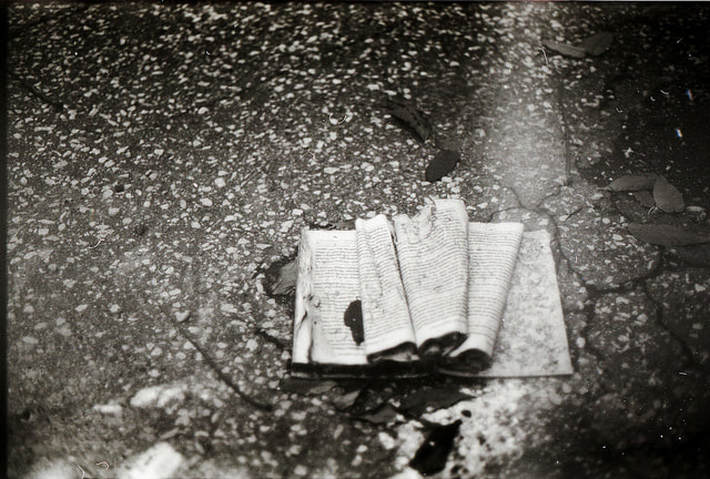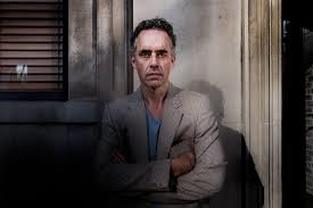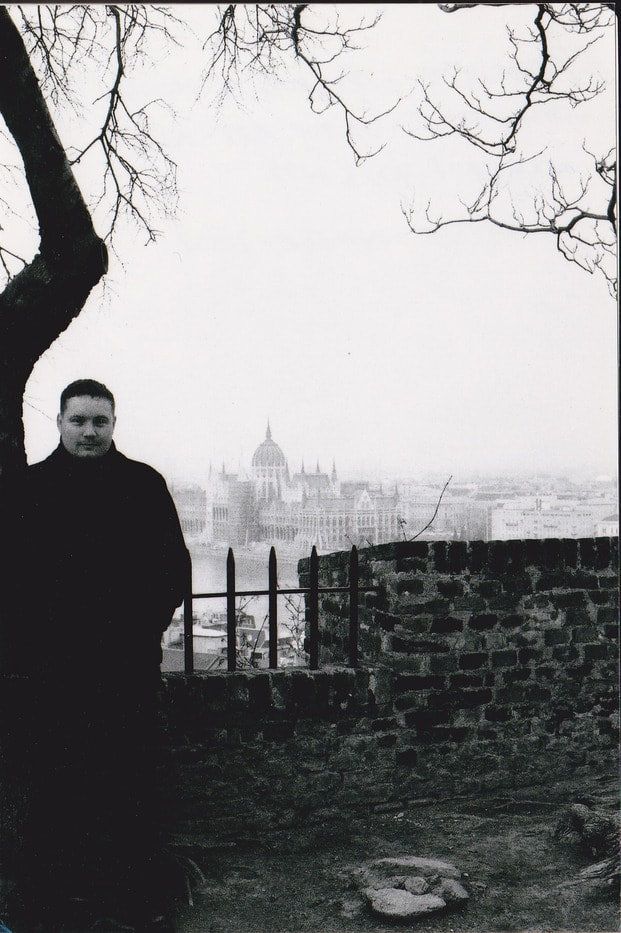|
For reasons I cannot begin to comprehend, it is seemingly impossibly to keep a Kindle book priced at exactly one dollar on Amazon.com. Amazon lowers and raises the price at will, sometimes several times a day. Though I set the price at one dollar, the very next day it is listed for a mere 78 cents. A few hours later, the price is above a buck-fifty. A few hours later, it is 1.26 and so on.
To avoid this constant volatility, I raised the price to 2.99 - a price that had been pretty stable in the past. To my chagrin, the book is listed at 3.80 now. Whatever. I give up. Amazon will list the book for whatever it damn well wants regardless of what I do or don't do. If anyone out there is interested in reading The City of Earthly Desire as an ebook, simply contact me and I will happily send you a copy of the novel as a PDF or epub via email in exchange for some feedback, a share, or a review. Cheers. The latest installment of Jordan Peterson's The Pyschological Significance of the Bible series. I will watch this tonight or tomorrow morning - after I revisit the the story in the Bible first. As part of my renewed effort to build and expand a platform, I have opened a Twitter account once again. I was never really big on Twitter, but I have decided to give it one more shot.
If you feel so inclined, I invite you to follow me there: My Twitter username is - @FrancisBerger01 For weight loss and getting in shape, they seem to work.
For most of my adult life my weight has oscillated between 200 and 215 pounds. Being on the lighter end of that range meant that I was eating fairly well and exercising often; the heavier end indicated I was either overeating or underexercising. When I found myself drifting toward 215, I cut back on my calories and hit the gym more often until I got back down to around 200. Then, as summer ended and the winter months ensued, I would slowly rise back up to the 215 level again. I accepted this range as a part of who I was and didn't give it much thought because I was sure that I could always lose the weight whenever needed. Then something funny happened. I turned forty. Drifting back down to 215 suddenly became a chore. It didn't matter how many times I went to the gym or how many calories I cut - the weight refused to come off. Those extra pounds clung to me like an amorous, coiled python (shit, that is one crappy simile)! For a year or two I resigned myself to the idea that this was middle-age and that I had reached that point in my life where my body would simply deteriorate or swell of its own accord regardless of the preventative measures I forced upon it. But try as I might, I could not throw in the towel that easily. Now, before I go any further I must state that I am not narcissistic about my body. I have no interest in posting pictures of myself on Instagram or attracting attention at the beach. For me, working out was always a means of compensating the lack of physical activity inherent in my work. I have always been more interested in how I feel rather than how I look. Truth be told, after I turned forty, I did not feel to well physically. I was lethargic. I had aches and pains. I slept poorly. My gut incessantly pushed up against my belt. Oddly enough, going to the gym slowly became a game of diminishing returns. I contemplated a course of action for months, but I was oblivious to the changes I should make. Then one day toward the end of this summer I had a revelation. I decided I would try eliminating refined carbohydrates and sugar from my diet, and I would quit the gym and take up calesthenics. Both represeneted major changes for me. For one, I love refined carbs, especially bread and pastries. Secondly, I had been going to gyms since I was sixteen, so I could barely conceive of what I would do to substitute what had become an integral part of my life. Eliminating the carbs proved easier than I anticipated. Though it was odd to eat eggs in the morning without toast and forgo pasta at dinner, I quickly became accustomed to eating only meat, vegetables, fruit, and dairy products. As for exercising, instead of the gym I began routine of old-fashioned bodyweight exercises: push-ups; chin-ups; pull-ups; sit-ups; squats; dips; and so on. I completed these outside regardless of the weather. When I started, I could barely manage three pull-ups on a bar, which made me wonder just what the hell all those years in the gym had really accomplished in terms of fitness and physical strength. Undeterred, I kept at it throughout the autumn. The results? Well after four months, I have lost more than twenty pounds. I am now 190 and have never felt better. I am not a doctor, or a fitness guru, or a nutrionist. I would not go so far as to say making the changes I have made would produce similar results for you, but for me the transformation has been quite remarkable. If you are pushing forty and are having trouble staying fit, give low-carb + calesthenics a try. It could be the thing for you, too. And you can do it without expensive programs, memberships, and products. I have saved a couple hundred dollars in gym fees alone since I switched to at-home body weight exercises. A ton of free material exists on both subjects on the internet, but I only researched the basics. The trick is to know your own body and discover what works and does not work for you. For the calesthenics part, I did only the most basic reading up. As for diet, I don't think you have to go full tilt keto or whatever they call the latest fad. Your body will tell you what it needs - all you have to do is tell your body it doesn't need pancakes and muffins. Simply get out there, start exercising, cut the excess carbs from your plate, and you are sure to see results rather quickly. The mark of a great book is that it stands up to rereading.
Truly great books get even better with rereading. Some books are so great I can reread them perpetually. I have reread some books I thought were good to find they remained good. My opinion of them did not change much. I often finish weak books, but I rarely reread them. When I do reread weak books, they often seem even weaker and the reading itself becomes a chore. I simply abandon books I find utterly weak and never return to them. But what about a book that seemed good on first reading, but falls apart when it is reread? What kind of book is that? As far as I'm concerned, these kinds of books are the worst. They are the worst because they make you question your own critical faculties and your skills as a reader. As you reread a book you thought was good but now doubt, you find yourself wincing and asking questions such as, "Why the hell was I thinking when I read this the first time round?" What makes the experience so unsettling is the realization that the book you are holding in your hands did not change at all - it remained the same despite the passage of time. What has changed is you. Now this is all fine and well for a rereading that occurs ten years after an initial reading. In cases like that, you have changed considerably, so it is little wonder that your opinion of a book may not be as high as it was when you were younger and less worldly. But what can be said about a book you decide to reread within a year or two? I recently had such an experience. What was the cause behind the disillusionment during the second reading? Well, in this instance I quickly realized I had not read the work objectively. I became disillusioned because I had allowed myself to become illusioned. I had allowed my personal biases to cloud my critical faculties. In short, when I read this particular work the first time I had literally willed it to be a good read. I had muffled all my misgivings and doubts and, like some lovelorn adolescent, lulled myself into seeing only what I wanted to see, rather than what was truly there. I ignored every flaw, was blind to every fault, and made subconscious excuses for every weakness I encountered (and, unfortunately, there were many of these - too many to count). In the end, I could not conjure up the same spell within me upon rereading, and the book simply crumbled in my hands. I believe this is a common problem for many readers, especially when we read a book by authors whose works we respect and admire. We simply allow this respect and admiration to flow over into the reading of their unread works, clouding our perception of whether a particular work is truly great or not. Perhaps this is merely one of our many human faults - to let positive past experiences overpower the reality of the present. To be more lenient to and forgiving of those we admire. To avoid the discomfort of challenging the notions we have built up about a writer and their books when confronted with a book that does not meet the same quality the writer achieved in his or her other works. Perhaps it is a little of all of these things. Regardless, henceforth I vow to be far more vigilant, objective, and honest when I read books for the first time, even if, or more correctly, especially when they are written by authors I revere. In January 2015 I wrote a blog titled Invent Yourself and Reinvent Yourself, which was inspired by a rereading of Charles Bukowski's poem No Leaders Please and the rather suboptimal situation that I found myself in at the time.
In January 2015 I was working as a high school teacher working in a small town in Northumberland, England. I rented a small terraced house in a small market town. I was not miserable or depressed because I had plenty of things to be grateful for, but I remember feeling a strong sense of dissatisfaction and sharp feeling of disillusionment. I had moved to England about six months earlier due to the shortage of teaching positions in Canada. I chose the United Kingdom because the employment situation there was the exact opposite of the one that existed and still exists in Canada. At that point, I had worked as a high school teacher for about a decade, mostly in New York City, but I had no desire to return to the US. The move to the UK was a final attempt to keep my career afloat, but it took less than three months of working in England for me to realize that I needed to get out of teaching high school altogether. This was not an easy realization to come to terms with - after all, I had a family to support. My little boy was only three at the time and my wife was a stay-at-home mom. My writing brought in barely any income and I did not know what other work I could do or pursuit I could follow. Unsure of what to do, I decided to get over my fear and misgivings and completely reinvent myself. I spent a month or two sorting through my life, making priorities, analyzing what I was doing well, and pondering what I needed to improve and change. This was not an easy process. The level of self-analysis and contemplation I engaged in during that time was both invogorating and terrifying. Regardless, I had one goal: to order my life in way that better reflected my true self. I was tired of the compromises I was making, tired of the lies I was was enduring, tired of the mediocrity I was tolerating. By the end of February, I had my priorities in order and my goals set. They were as follows: 1. Quit teaching high school. 2. Find meaningful work. 3. Make more money. 4. Buy a house. 5. Open a business. 6. Get back to writing. 7. Put the family at the center of everything. Be a good father and husband. Three years have passed since I vowed to reninvent myself. So, how have I done? 1. I quit teaching high school in March 2015 and now work as an instructor in two universities in Europe - one in Hungary and one in Austria. My work week is about 20 hours. I no longer have to endure behaviour problems, sjw ideology, ridiculous workloads, unrealistic expectations, testing pressures, etc. For the first time in years, I actually enjoy teaching again. I will never go back to teaching high school again. Perhaps I will go into more detail about why in a future post. 2. I teach English and also work as an editor/peer-reviewer at one of my jobs. I especially enjoy my editing/reviewer role because it allows me to work with language on a daily basis. This helps me become a better writer and editor - experience I can apply to my own writing. I am appreciated and valued for my skills and work ethic. 3. I make about the same amount of money I did in England or Canada, but I am able to save more which, in essence, is the equivalent of making more as far as I am concerned. Thankfully, I have no debt whatsoever, so my financial pressures are few. 4. We moved to Hungary in March 2015 and bought a house in a small village outside Sopron almost exactly one year later. The real estate prices in Hungary are considerably lower than in North America and western Europe; thus, I was able to buy my house for cash and I am mortgage-free. 5. I founded and operate a small language services company a couple of years ago. I have made a modest side income from it since and it seems set to really take off in the next six to eight months. In the past two years I have translated a book, countless articles as well as some inscirptions on statues and monuments. 6. I have started working on my new novel Fallen Men after more than four years of not writing anything at all. 7. My son is now six, loves our new home, and is growing up to be a healthy, happy, and ambitious little guy. My wife is comforted by the fact that we own our home outright and have zero debt. She is looking to return to the workplace on a part-time basis. I keep my focus on my family and always put them first, regardless of what is going on other areas of my life. Though the reinvention I embarked upon is still very much in progress, I am amazed by everything that has transpired since I made the decision to change my life and sort myself out. Incidentally, Invent Yourself and Reinvent Yourself has proven to be one of my most popular blog posts, having received several thousand hits since January 2015. To give some sense of perspective, most of my posts get only fifty or sixty views in total and some get even fewer! I imagine some of the views come from Bukowski fans or those looking for the poem No Leaders Please, but I also suspect there are many people out there who find themselves in the same kind of situation I found myself in nearly three years ago. Perhaps these people are looking for inspiriation or encouragement or motivation in order to make the changes in their lives they know they need to make. If people do read the post for that reason, I can offer the following advice - if you feel the need to reinvent yourself, do it, but do it responsibly, and do it in pursuit of the good. Don't abdicate responsibility when you reinvent yourself, but take on larger, greater responsibilities. Don't initiate wrong action when you reinvent yourself, but pursue the good. Be honest when you reinvent yourself. Stop lying to yourself and commit to those aspects of life you know you need to commit to. Focus on the high rather than the low. Be fearless, but not foolhardy. As Bukowski wrote: reinvigorate yourself and accept what is but only on the terms that you have invented and reinvented. be self-taught. and reinvent your life because you must; it is your life and its history and the present belong only to you. If you reinvent yourself properly, the universe will not only acknowledge your reinvention, but will also support and legitmize it. Thus, if you feel poised to reinvent yourself, all I can tell you is - do it - but do it properly. After pondering the question for months, deciding against it, second-guessing that decision and returning to another of month of ponder ping pong, I have decided to commit to expanding my platform in the coming months. I have no idea how successful my attempts will be, but I simply must try.
Wish me luck. If I had the chance to choose one person I would really like to read my work, it would have to be Jordan Peterson.
Hands down. No contest. To have him comment on The City of Earthly Desire, especially concerning my depictions of communism, art, tradition, and political correctness, would be an honour. Unfortunately, the novel makes no mention of lobsters, but I would gladly add a chapter if it would prompt him to give the novel a read. Should anyone know how to get a copy into the esteemed professor's hands, by all means, make haste! I stumbled across this old photo my wife took of me back in 2002 when we called Budapest home. Though I uploaded this image to both my Amazon and Goodreads pages years ago, I had more or less forgotten about it, and I had a good chuckle when I saw it again the other day. I am thirty-one years old in this photo; even though I would not begin writing The City of Earthly Desire for another eight or nine years, I am fairly certain my inspiration for the novel began during this time.
|
Blog and Comments
Blog posts tend to be spontaneous, unpolished, first draft entries ranging from the insightful and periodically profound to the poorly-argued and occasionally disparaging. Comments are welcome but moderated. Please use your name or a pseudonym in comments. Emails welcome: f er en c ber g er (at) h otm ail (dot) co m Blogs/Sites I Read
Bruce Charlton's Notions Meeting the Masters From The Narrow Desert Synlogos ✞ Aggregator New World Island New World Island YouTube Steeple Tea Adam Piggott Fourth Gospel Blog The Orthosphere Junior Ganymede Trees and Triads nicholasberdyaev Archives
July 2024
|





 RSS Feed
RSS Feed

